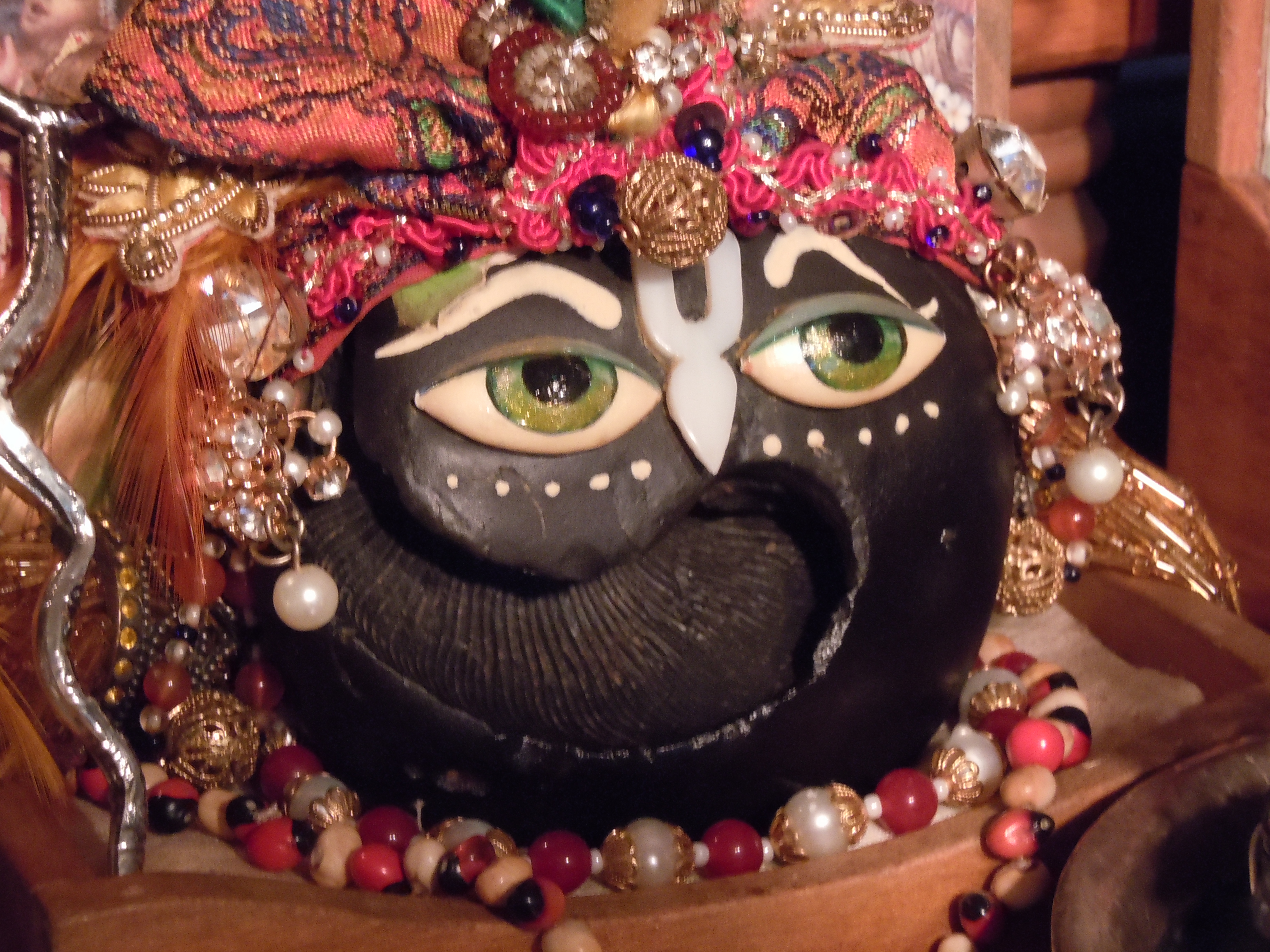Conv Mayapur Feb 4 1976
Prabhupāda: They are all in the material world, karmīs. Karma–kāṇḍa,ritualistic ceremonies. Prahlāda Mahārāja has described them. What is that very word used? And meaning is "one who cannot control their senses." Avijita–indriya. Ajitendriyāṇām, ajita, "one who could not conquer the senses," they are called karmīs. Ajitendriyāṇām. So all these penances,silence, meditation, then studying the Vedic literature, and so many things are there. Prahlāda Mahārāja, in one word he says, "They are meant forajitendriyāṇām, one who could not conquer over the senses, for them." And for a devotee, one who is actually pure devotee of Kṛṣṇa, he is saguṇān samatītyaitān [Bg. 14.26]. Not that a tiny devotee can claim that he has overcome the influence of this world. No. This is called paramahaṁsa.Sa guṇān samatītyaitān [Bg. 14.26]. Not that because you have taken to devotional…, you have become immediately. The process has begun immediately, curing process. But we should not think that we have become perfect. That is wrong. Yajña–dāna–tapaḥ–karma na tyājyam. Therefore you must follow the regulative principles. As soon as you become a rascal—"Now I have become advanced. I don’t require to chant sixteen rounds. I can do whatever I like"—then he has gone to hell. Upstart, immediately he becomes paramahaṁsa. He’s a rascal. He was given the path of becoming paramahaṁsa. One is admitted in the school, he must learn, and one day he will become M.A. But simply by entering in the school, if he says, "I am M.A.," that is rascaldom. This is a chance. To become jitendriya is very difficult task. But it is easy if he immediately becomes a pure devotee.Anyābhilāṣitā-śūṇyam: [Brs. 1.1.11] "Everything make zero, all desire, except Kṛṣṇa consciousness." That is wanted. But that does not become very easily done. One has to try very rigidly; then he’ll be paramahaṁsa.Therefore amongst the devotees, there are three grades: kaniṣṭha–adhikārī,madhyama–adhikārī, and uttama–adhikārī. So if the kaniṣṭha–adhikārī thinks that "I have become uttama–adhikārī," then he’s a rascal. He’s a rascal. If he wants to imitate the uttama–adhikārī, then he’s a rascal.

Under the guidance, inspiration and authority of
His Divine Grace A.C. Bhaktivedanta Swami Prabhupada
Founder-Acharya of the Krishna Consciousness Movement
Srila Prabhupada: “I wish that each and every branch shall keep their separate identity and cooperate keeping the acharya in the center. On this principle we can open any number of branches all over the world. (Letter, February 11, 1967)



